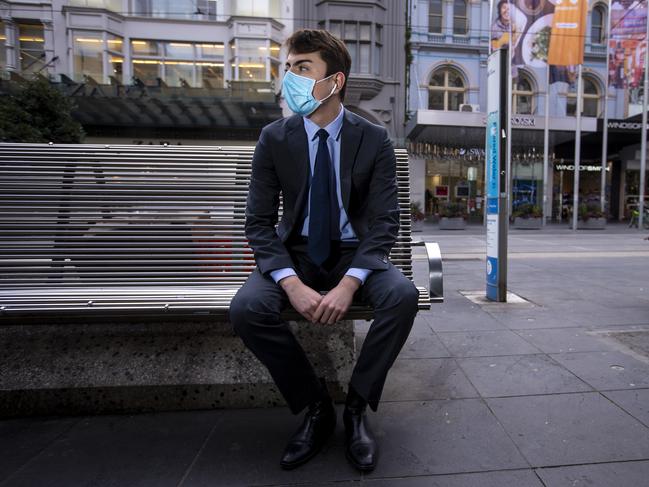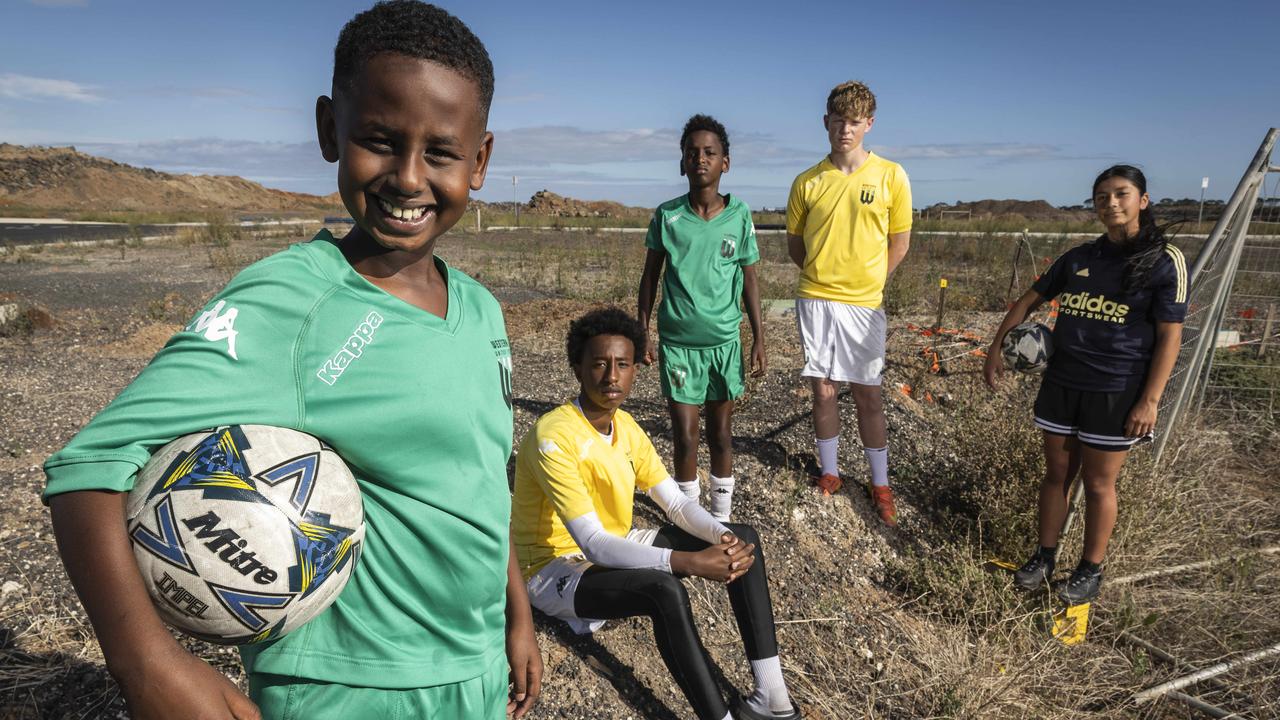How Melbourne’s offices can attract workers back
Most workers still want to spend part of the week at home now lockdowns are over. So what can offices in Melbourne’s CBD do to coax workers back?

Future Victoria
Don't miss out on the headlines from Future Victoria. Followed categories will be added to My News.
Melbourne’s CBD is expected to bounce back from pandemic shutdowns, but how people work there and when they come into offices is in for a shake-up, experts predict.
It is generally accepted that most employees will still want to spend part of the week working from home, and they might want changes in the office too.
PwC chief economist Jeremy Thorpe said businesses are going to have to make their environments even more attractive for people to come in.
“So we expect innovation in the offices, because you’ll only go into the office if it’s a better experience than working from home,” he said.
“We think there’s going to be more space devoted to team activities or to better webcast facilities — that evolution of the office continues.”
Mr Thorpe said that while the CBD would continue to be a magnet for activity, the mix of companies there was likely to change.
“It may be that some of the bigger businesses won’t have as many people in the CBD, but the market will respond by breaking up floors and lowering prices over time,” he said.

“Businesses that always wanted to be in the CBD but couldn’t afford it — we think in the short term we’ll see them coming in.”
This could include technology firms and start-ups, with a workforce spread across full-time, part-time and casual positions.
Mr Thorpe said that the severe impact of Covid on Melbourne over the past 18 months will make many people wary about returning to city work.
“People might travel less on public transport in peak hour because they might work at home in the morning and go into office in the afternoon,” he said.
“We’ll see more flexibility — that may or may not mean more car use — we don’t have a full handle on that yet.”
“While a large part of the community will still do what they did previously, maybe we’ll need to rethink our transport schedules and our concept of peak hour.”
For Lord Mayor Sally Capp, the key to reviving the CBD is to continue providing experiences and spaces that will attract people, such as the city council’s Greenline linear park project along the Yarra River, and the Queen Victoria Market redevelopment.
“Having a focus like Greenline and the QVM renewal shows people that we’ve got visions for the city, and that we’re willing to make big investments over a long period to drive big city-shaping projects,” she said.

Ms Capp said sprucing up inner-city precincts, such as Docklands, by redeveloping for instance the currently closed Central Pier would be vital to attract visitors.
“Central Pier used to draw a million people when it was effectively events space, so imagine if we added an attraction whether it’s a cultural arts attraction, or could be a new theatre or place for live performances, new galleries,” she said.
“We’ve also talked about spaces to showcase food and beverage there, such as bringing together the regions of Victoria.”
The Lord Mayor said that central Melbourne must remain a business powerhouse, “but we will be investing more in, and working with partners on the offer that is entertainment, retail, hospitality and even accommodation”.
“We know that people will be looking for work and something to do, it’s absolutely essential that we have an active program,” she said.
“And it goes to how we’re different from the suburbs — you don’t get that sort of activity happening in the suburbs like galleries, theatres at the scale and variety that’s in the city.”
GROWING MELBOURNE ON WORLD STAGE
The rise of Melbourne as the nation’s most populous city will reshape the conversation about Australia throughout global boardrooms, senior business and political figures say.
The Victorian capital is well placed to serve as a stable corporate launching pad into an increasingly nervous Asia Pacific region amid long-term tension in Hong Kong, while the Reserve Bank of Australia and Australian Prudential Regulation Authority should also move their headquarters to Melbourne once the population milestone is passed.
“We are going to have much more gravitational pull,” former premier Steve Bracks said.
The gold rush of the 1850s saw Melbourne emerge as the nation’s clear corporate capital, although that power seeped north to Sydney from the 1970s onwards as the financial sector took on an increasingly pivotal role in the global economy.
Since then the two rival cities have carved up the nation’s top company headquarters.
Melbourne has ANZ and National Australia Bank while Sydney has Commonwealth Bank and Westpac, Melbourne has Coles and Sydney has Woolworths, Melbourne got Afterpay, Sydney got Atlassian and Melbourne has the Future Fund while Sydney has APRA and the RBA.
But Sydney houses virtually all of the global investment banks and has also won the lion’s share of a new generation of multinationals with Google, Apple, Microsoft, Amazon, Facebook and Tesla all planting their local headquarters in the NSW capital.
That will change once Melbourne secures the cut through tag of being “Australia’s biggest city”.
“If you are setting up a head office in Australia you are much more likely to head it up in Melbourne than you are in Sydney as we move forward to a higher population centre,” Mr Bracks said.




